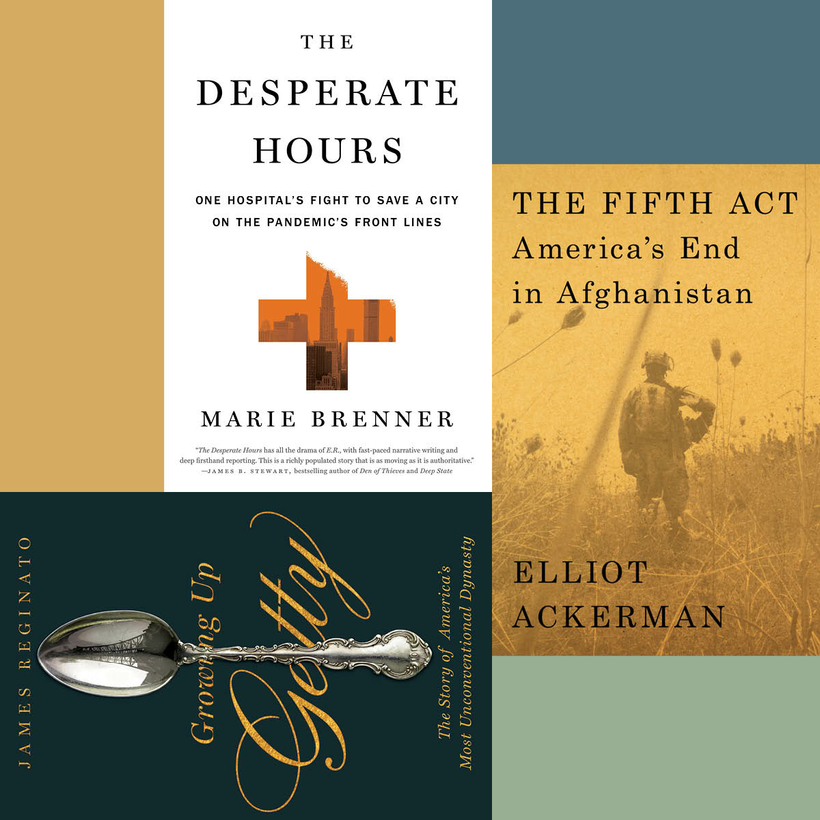Marie Brenner is a masterful storyteller, and thus she is the ideal chronicler of how one hospital coped—and failed to cope—with the Great Pandemic. By focusing on a premier hospital such as New York-Presbyterian, Brenner shows how the smartest can so easily act so dumb, and that the heroes are not always the ones in charge. As an interviewer, Brenner is sympathetic (never before had the hospital been tested like this) but not uncritical (and yet, the screwups!), so the reader is guaranteed an evocative but never sensationalized look at what life was like on the front lines during a crisis that claimed the lives not only of so many patients but also of nearly three dozen staffers who were there to save others but could not save themselves.
If you want to understand how the war in Afghanistan became such a debacle, this book is indispensable. Elliot Ackerman, who is something of a soldier-scholar (he served five tours of duty in Iraq as well as Afghanistan and worked as a White House Fellow), brilliantly explores last year’s fall of Kabul through his own experiences on the battlefield, expertly interwoven with his dramatic attempts from afar to evacuate, and thus keep from falling into the hands of the Taliban, Afghan nationals who had worked with the U.S. How much he succeeds in this endeavor gives the book its narrative tension, and along the way Ackerman reflects persuasively on who is to blame for the Taliban takeover. One of the culprits is the American people, who simply stopped caring about the war.
In the hands of a lesser writer, the story of the oil-soaked Getty clan could easily have been a lurid mess, what with a skinflint patriarch, a kidnapped-and-soon-to-be-missing-an-ear grandson, and various other tragedies that make you thank God the rich are different from you and me: we at least are normal. James Reginato is a fine and subtle chronicler of the privileged, so Growing Up Getty presents a richly nuanced portrait of an extended family that prizes philanthropy, the arts, the environment, and L.G.B.T.Q. rights. Some like the spotlight, some shy away from it, and a surprising number appear to be normal, just like us! Most surprising of all is Reginato’s portrayal of J. Paul Getty himself, who comes across as kinder than his caricature, a man capable of humor and affection and not nearly the recluse legend would have it.
The Desperate Hours and Growing Up Getty are available at your local independent bookstore, on Bookshop, and on Amazon. The Fifth Act will be available beginning August 9

